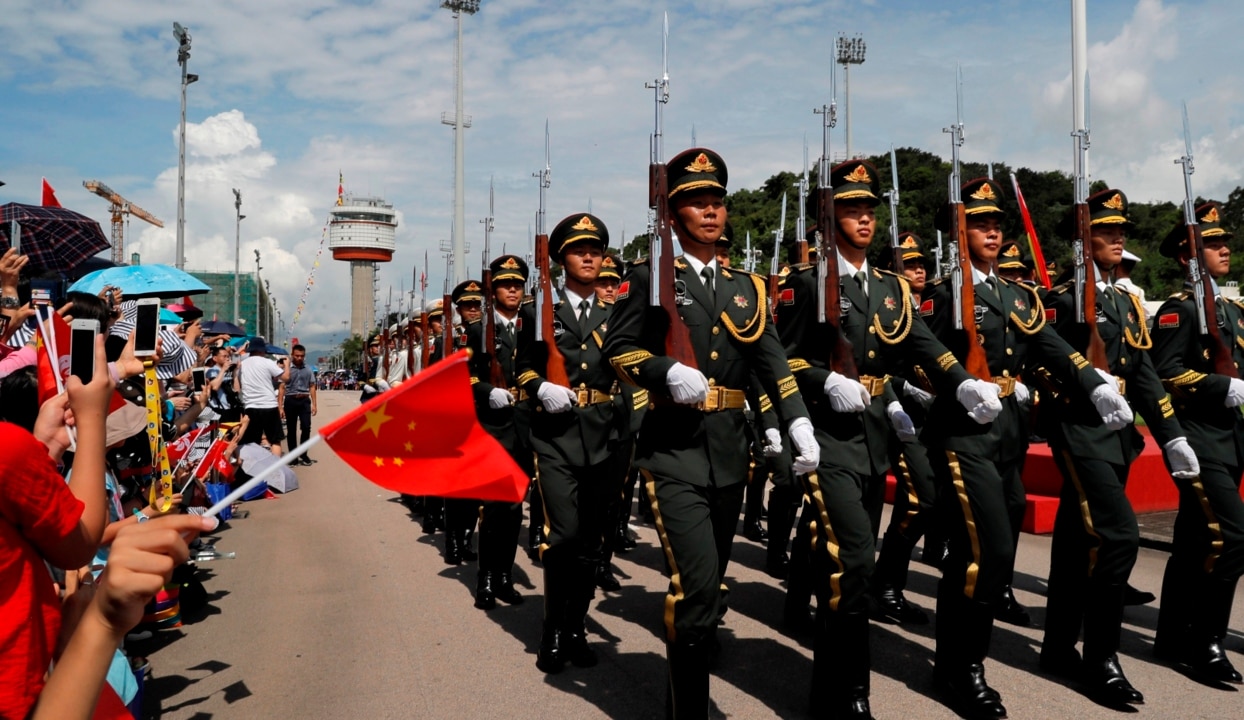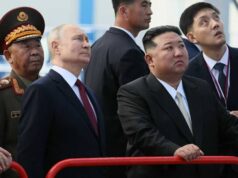China hits back at Australia-US statement on South China Sea, Hong Kong

Foreign Minister Marise Payne and Defence Minister Linda Reynolds are in Washington, DC for the Australia-US Ministerial Consultations, or AUSMIN, hosted by US Secretary of State Mike Pompeo and Secretary of Defense Mark Esper.
In the joint statement following the meetings, the two countries expressed “deep concern” over hot-button issues including Hong Kong, Taiwan, the “repression of Uyghurs” in Xinjiang and China’s maritime claims in the South China Sea, which are “not valid under international law”.
But the Chinese embassy in Australia swiftly hit back in a statement of its own.
“We firmly reject and oppose the unfounded accusations and attacks against China on issues related to Hong Kong, Xinjiang and the South China Sea made in the recent Joint Statement of Australia-US Ministerial Consultations,” it said.
“Their assertions, in disregard of basic facts, violated international law and basic norms governing international relations and grossly interfered in China’s internal affairs.
“We reiterate that the Chinese side is unwavering in upholding national sovereignty, security and its legitimate rights and interests. We are firmly committed to maintaining regional peace and stability. Any attempt to pressure China will never succeed.
“We urge Australia not to go further on the road of harming China-Australia relations, and truly proceeding from its own interests, do more things that are conducive to mutual trust and co-operation between the two countries.”

(L-R) Australia’s Defence Minister Linda Reynolds, Foreign Minister Marise Payne, US Secretary of State Mike Pompeo and Secretary of Defence Mark Esper hold a press conference following the 30th AUSMIN on July 28, 2020, in Washington, DC.

(L-R) Royal Australian Navy helicopter frigate HMAS Parramatta conducts officer of the watch manoeuvres with amphibious assault ship USS America, guided-missile cruiser USS Bunker Hill and guided-missile destroyer USS Barry in the South China Sea.
AUSTRALIA, US HIT BACK OVER SOUTH CHINA SEA
It comes days after Australia significantly ratcheted up its rhetoric by formally joining with the US in declaring Beijing’s claim to the South China Sea as illegal, in a letter to the United Nations.
“The relationship between China and Australia has now deteriorated to a very bad point and the chance for a turnaround is slim in the near future,” Guangdong Research Institute professor Zhou Fangyin wrote in the piece.
“One of the main reasons is that Australia’s policy lacks independence and its current choice is to closely follow the US lead. If Australia further provokes China, not only on political relations, but also economic relations, the damage to Australia should be expected.”
Last week the ABC reported Australian warships sailing near the disputed Spratly Islands had been confronted by the Chinese navy.
The Australian Defence Force joint task group consisting of five ships was travelling through the area earlier this month on the way to Hawaii for joint military war games with the US and Japan in the Philippine Sea.
In a statement at the time, the ADF insisted there was “no confrontation”.
“All interactions with foreign warships throughout the deployment were conducted in a safe and professional manner, as we would expect in response to vessels operating in international waters in accordance with international law,” a spokesman said.
“There was routine and professional naval communications. The Joint Task Group’s transit in the South China Sea occurred in international waters in accordance with freedom of navigation rights under international law.”




